Struggling with stock shortages, excess inventory, or inaccurate tracking? If you run a retail business, these challenges can be frustrating. Managing inventory isn’t just about counting products—it’s about having the right items available when needed.
Retail inventory is here to help businesses gain control, improve efficiency, and cut down on waste. Then, the global retail inventory management software market was valued at approximately USD 5.54 billion in 9.7% during the forecast period.
This article covers the advantages of retail inventory software, top options to consider, and key factors to help you choose the right system for your business.
Key Takeaways
|
Table of Content
Content Lists
What is Retail Inventory Software?
Retail inventory software helps stores efficiently monitor and manage their stock levels. This tool ensures accurate inventory records, improves stock control, and aligns inventory with sales trends and forecasts.
With inventory management systems, stores can track stock levels, manage reorders, and monitor sales in real time. These systems keep inventory and sales data synchronized while offering analytics that assist retailers in making smart decisions about restocking and price adjustments.
Benefits of Retail Inventory Software
Managing inventory can be tricky, but with the right software, you can keep your stock in check, cut costs, and boost profits. Here’s how retail inventory software can help:
1. Accurate Stock Tracking
Keeping track of inventory manually can lead to mistakes, like counting errors or mismatched stock levels. With retail ERP software, your stock updates in real time, so you always know exactly what’s available. No more guesswork!
2. Smarter Stock Control
Too much stock wastes money, and too little means missed sales. Inventory software keeps the balance just right by monitoring stock levels and automatically reordering when needed. This way, you never overstock or run out of bestsellers.
3. Lower Costs, Higher Profits
By managing inventory wisely, you can reduce waste, avoid expired or outdated products, and save money on storage. The software also helps identify slow-moving items so you can discount or phase them out before they become a loss.
4. Happier Customers
Nothing frustrates customers more than out-of-stock items. With a smart inventory system, you can always keep popular products available, improving customer satisfaction and increasing repeat purchases. Plus, you’ll get insights into buying trends to stock what sells best.
5. Saves Time and Effort
Manual stock tracking is time-consuming. With automated inventory software, your team spends less time counting and more time focusing on sales and customer service. It’s a win-win for efficiency and productivity.
6. Real-Time Insights for Better Decisions
Having up-to-date inventory data helps you make smarter business decisions. Whether it’s adjusting stock for seasonal demand or spotting trends early, real-time insights give you a competitive edge in a fast-moving retail market.
By using retail inventory software, you’re not just keeping track of stock—you’re setting your business up for smoother operations, cost savings, and happier customers!
10 Best Retail Inventory Software in Malaysia
Here are the top 10 retail inventory software in Malaysia in 2025:
1. HashMicro Retail Inventory Software
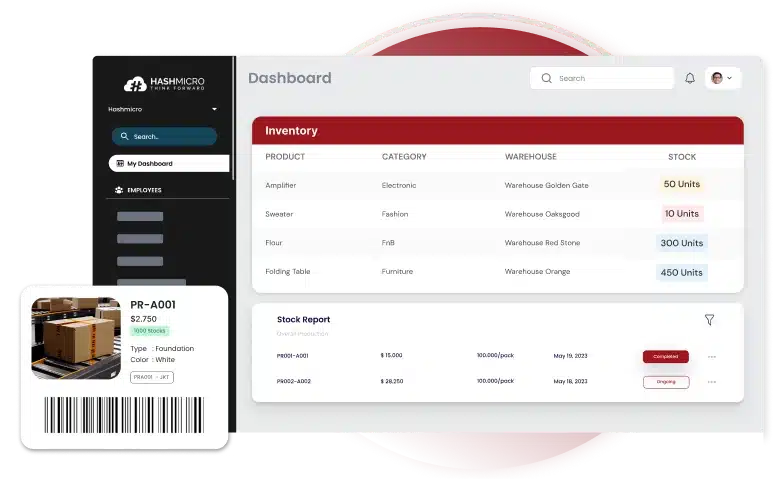
HashMicro offers a fast, user-friendly, and all-in-one inventory solution for businesses of all sizes, including construction. It’s also the leading retail inventory software in Southeast Asia, including Malaysia.
It simplifies inventory management for companies in Indonesia and Singapore by handling barcodes, tracking stock in real time, managing picking and packing, automating supplier orders, and streamlining customer shipments.
Features:
- Accurate Goods Tracking: Barcode management ensures precise and efficient tracking.
- Automated Stock Requests: Easily manage stock requests across branches and warehouses.
- Custom Integration: Adapt the software to fit your business needs with ERP integration.
- Seamless System Connectivity: Works smoothly with accounting, purchasing, and POS modules.
- Automated Stock Recording: Keeps inventory updated in real-time for smooth warehouse operations.
| Pros | Cons |
|
|
2. Ordoro Retail Inventory Tracking Software
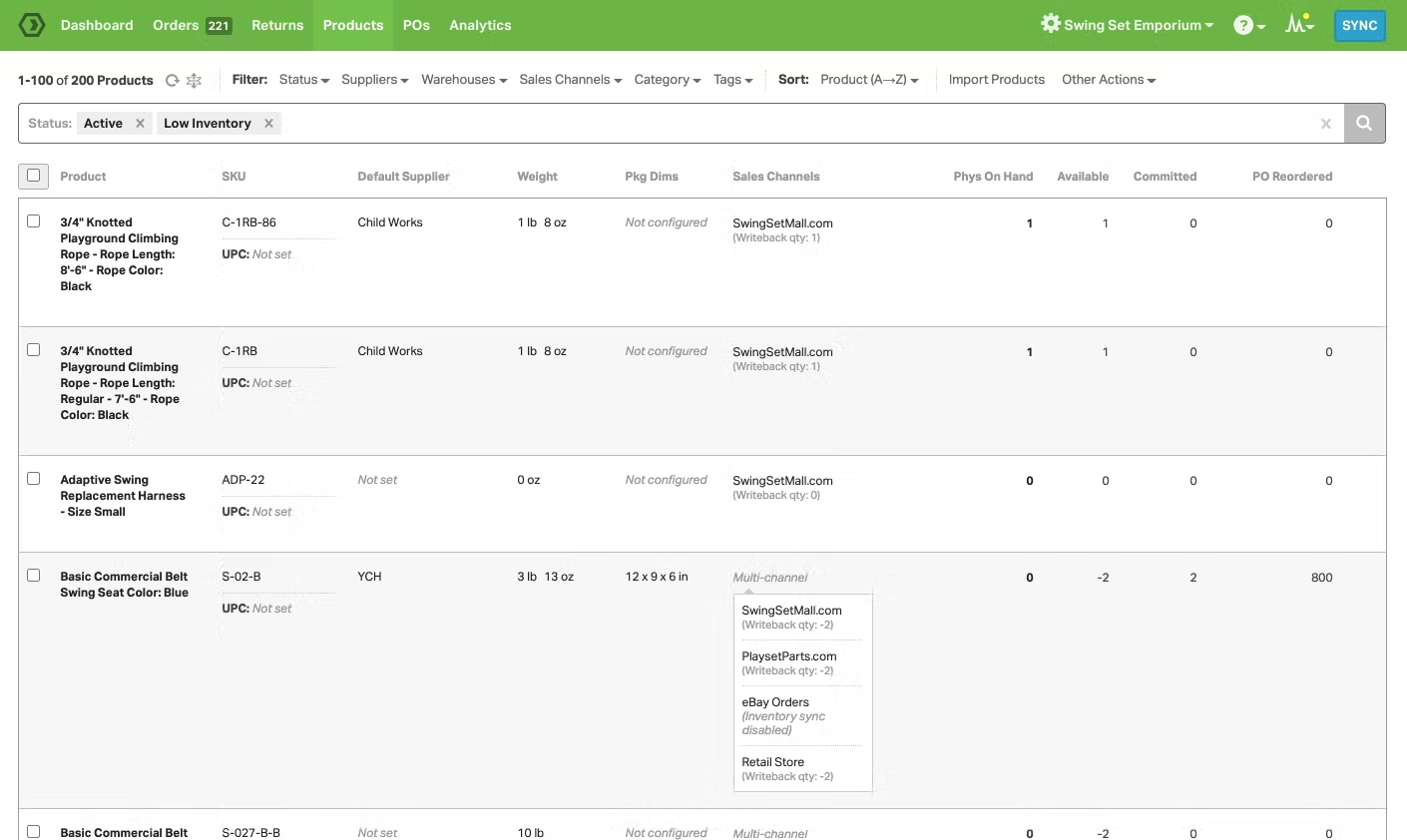
Ordoro is a powerful web-based retail inventory software that manages the entire sales process from start to finish. It offers a seamless inventory management system with built-in features like shipping, kitting, dropshipping, automation, barcode scanning, supplier analytics, insurance, and returns.
Designed for efficiency, Ordoro keeps product information updated in real-time for smooth operations.
Features:
- Real-time inventory tracking
- Multi-channel inventory management
- Barcode scanning
- Automated order routing
- Dropshipping management
| Pros | Cons |
|
|
3. Partkeepr
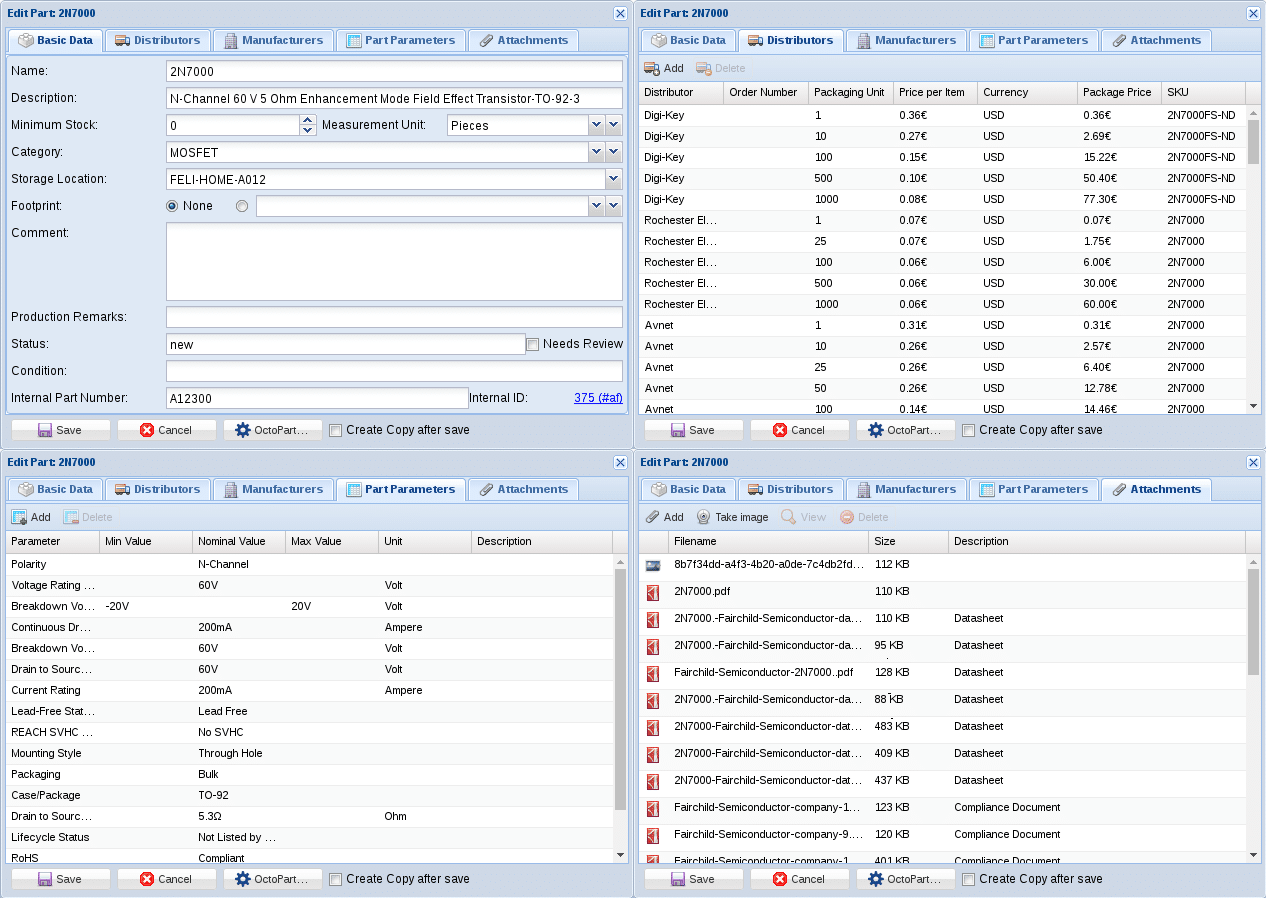
PartKeepr is an open-source inventory management solution designed for businesses that need a flexible and customizable system. It provides efficient stock tracking, organization, and reporting to help retailers manage their inventory with ease.
Features:
- Customizable database fields
- Advanced search and filtering
- Import/export functionality
- User access control and permissions
- API for third-party integrations
| Pros | Cons |
|
|
4. inFlow Inventory
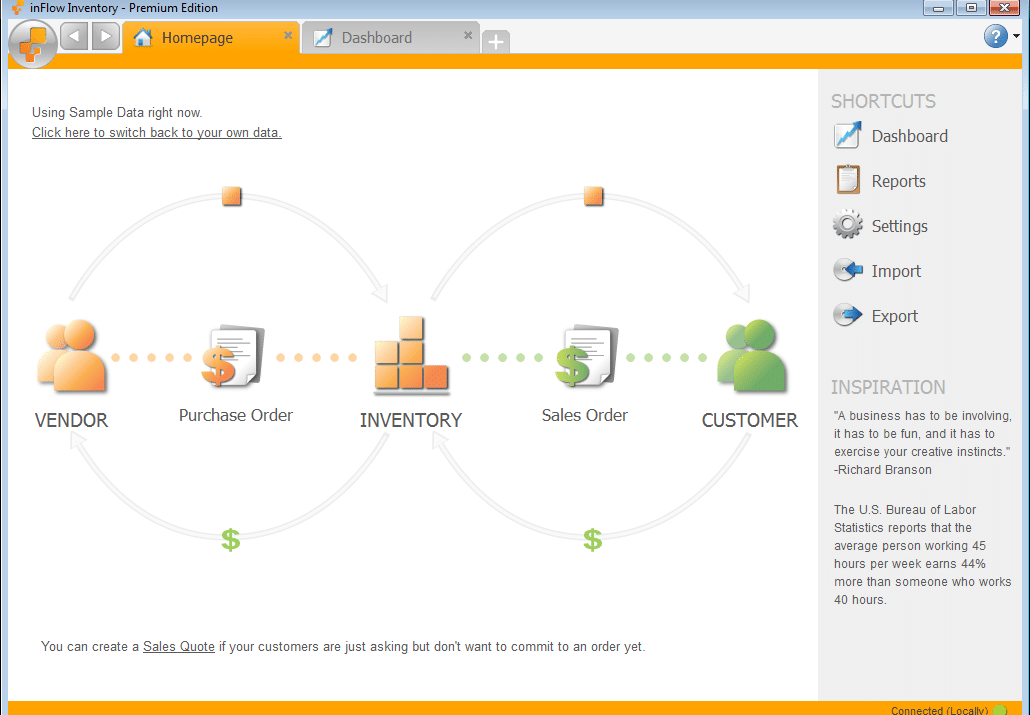
inFlow Inventory is an intuitive retail inventory management solution to track stock, manage orders, and optimize inventory workflows. It provides a user-friendly interface with powerful features to help businesses streamline their inventory processes.
Features:
- Automatic stock adjustments
- Low-stock alerts and reorder automation
- Supplier and customer management
- Integration with e-commerce and retail accounting software
| Pros | Cons |
|
|
5. Shopify Retail Inventory Software
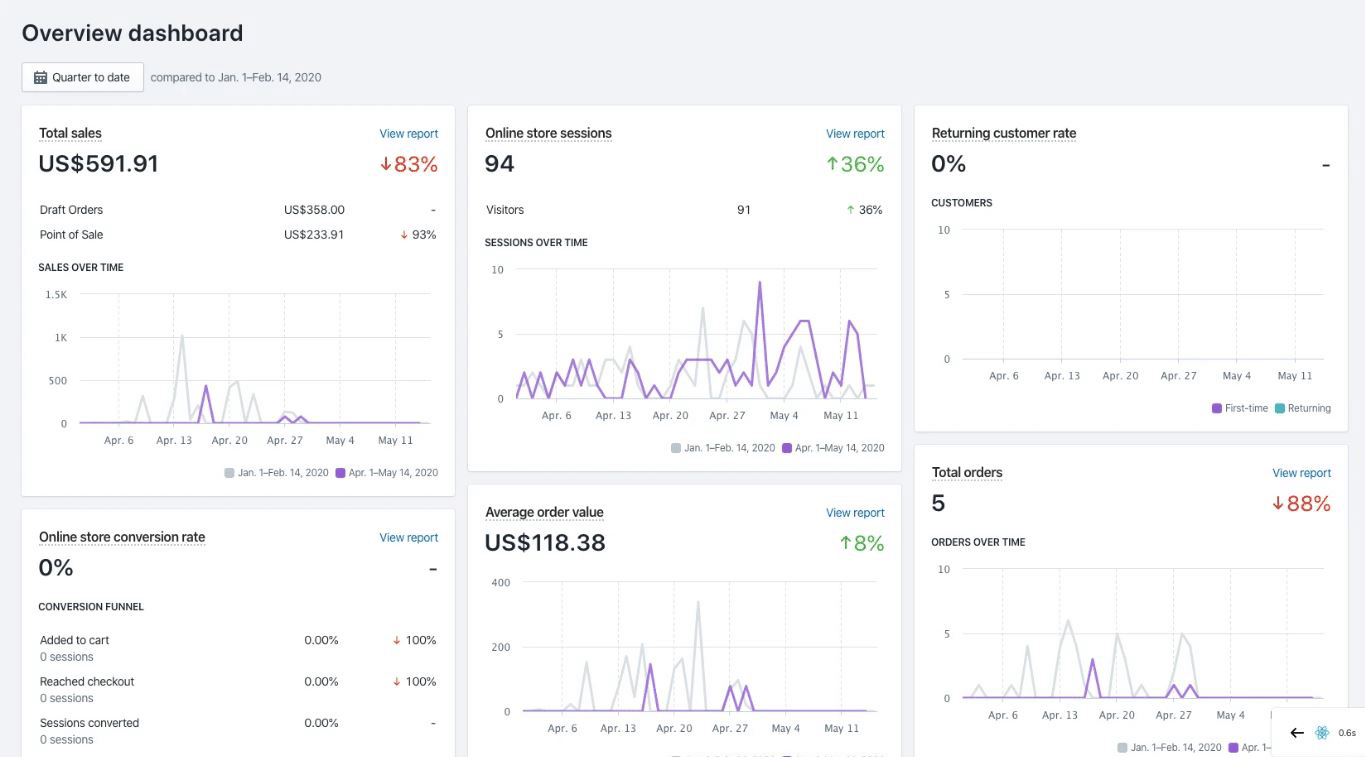
Shopify is a popular e-commerce platform that includes built-in inventory management tools for retailers. It allows businesses to track stock, manage sales, and sync inventory across multiple sales channels for seamless operations.
Features:
- Multi-channel inventory synchronization
- Barcode scanning and labeling
- Integration with POS, accounting, and third-party apps
- Low-stock alerts and notifications
| Pros | Cons |
|
|
6. RightControl
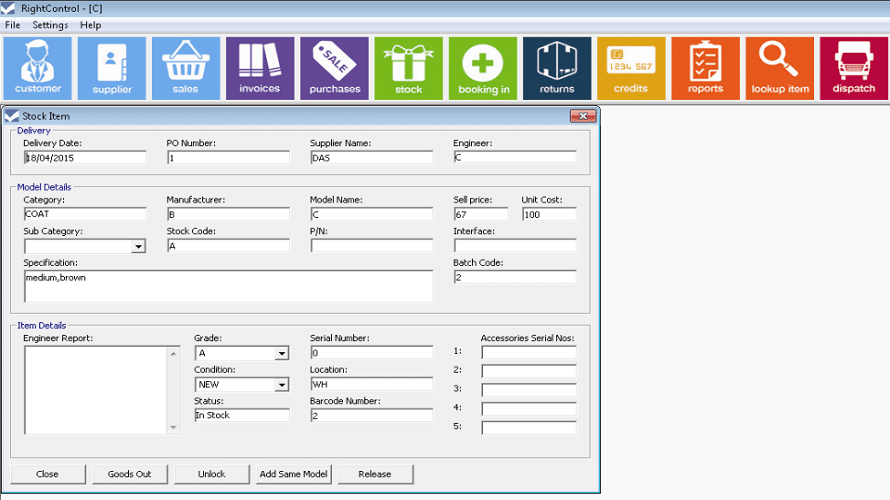
RightControl is a lightweight yet efficient inventory management software for small to medium-sized retailers. It offers essential stock management features, order tracking, and sales processing.
With built-in invoicing, barcode scanning, and customer management, RightControl helps retailers streamline day-to-day inventory tasks without the complexity of larger enterprise solutions.
Features:
- Barcode scanning for quick stock updates
- Multi-location stock management
- Automated low-stock alerts and reorder management
- Integration with accounting systems
- User access control for security
| Pros | Cons |
|
|
7. Vend Retail Inventory Software
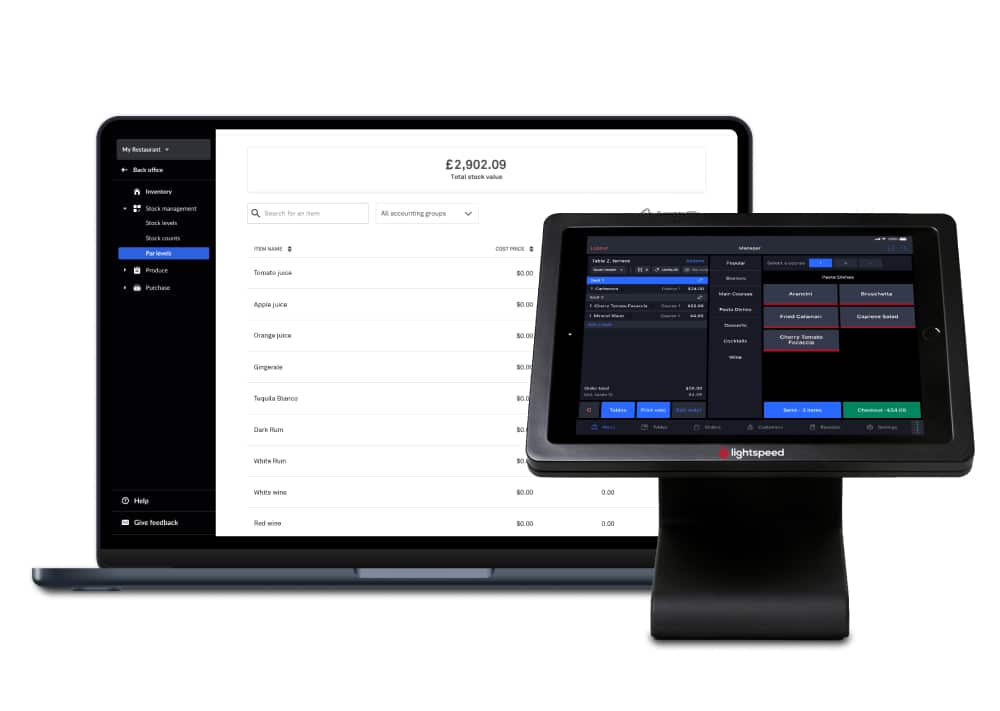
Vend is a cloud-based retail inventory management software designed for retailers looking to streamline stock control, sales, and customer management. It provides real-time inventory tracking, multi-store management, and seamless POS integration.
With advanced reporting and automated stock updates, Vend helps retailers maintain accurate inventory levels while improving operational efficiency.
Features:
- Low-stock alerts and notifications
- POS integration for seamless sales tracking
- Supplier and purchase order management
- Customer relationship management (CRM)
- Reporting and analytics for sales and inventory insights
| Pros | Cons |
|
|
8. Cin7 Retail Inventory Tracking Software
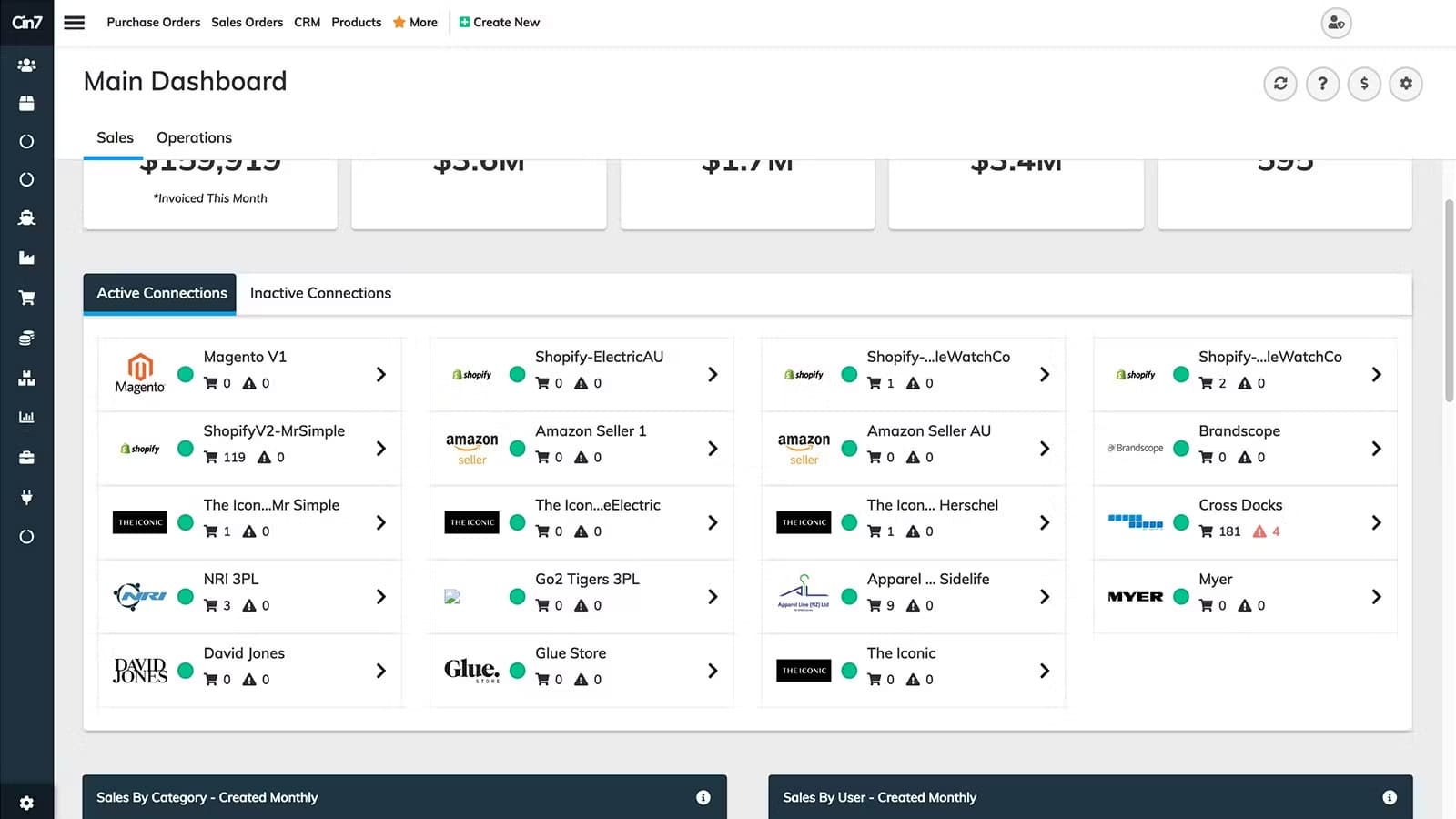
Cin7 is a comprehensive retail inventory management software designed for businesses that need advanced stock control, multi-channel sales integration, and automation.
It offers real-time inventory tracking, warehouse management, and seamless connections to e-commerce, POS, and accounting systems. With its powerful automation and reporting tools, Cin7 helps retailers optimize inventory, reduce manual work, and scale efficiently.
Features:
- Low-stock alerts and reorder automation
- POS integration for seamless sales tracking
- B2B and e-commerce platform synchronization
- Supplier and purchase order management
- Inventory forecasting and demand planning
| Pros | Cons |
|
|
9. Fishbowl Inventory
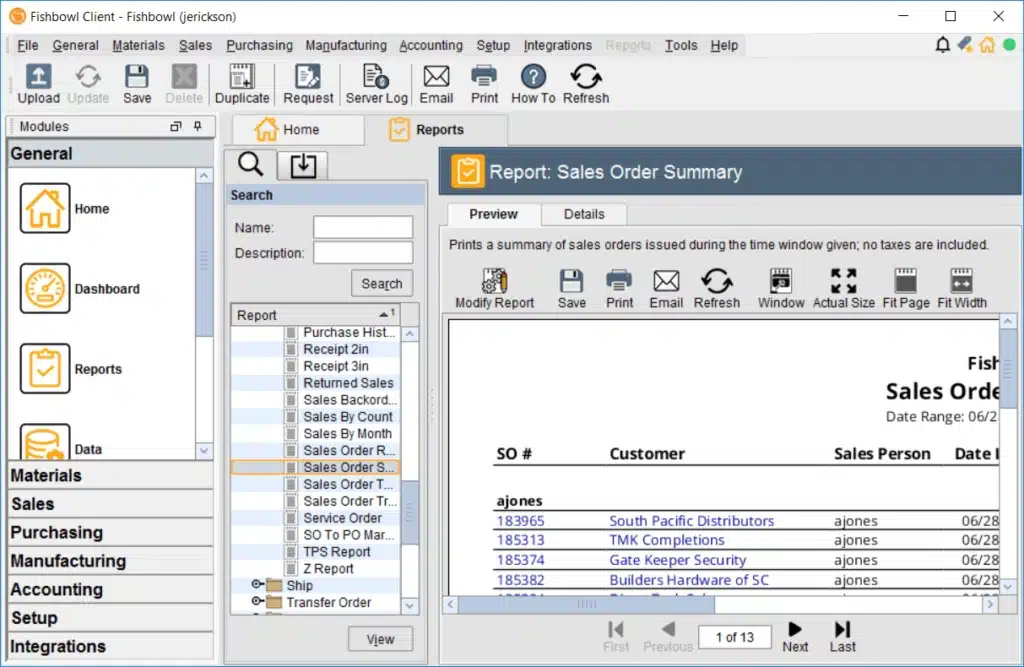
Fishbowl is a powerful retail inventory tracking software designed for businesses needing advanced inventory control, order management, and manufacturing capabilities.
It integrates seamlessly with QuickBooks, e-commerce platforms, and POS systems, making it ideal for retailers looking to automate stock tracking and improve efficiency.
Features:
- Purchase order and supplier management
- Integration with QuickBooks, e-commerce, and POS systems
- Manufacturing and assembly tracking
- Sales order and fulfillment automation
| Pros | Cons |
|
|
10. Sortly
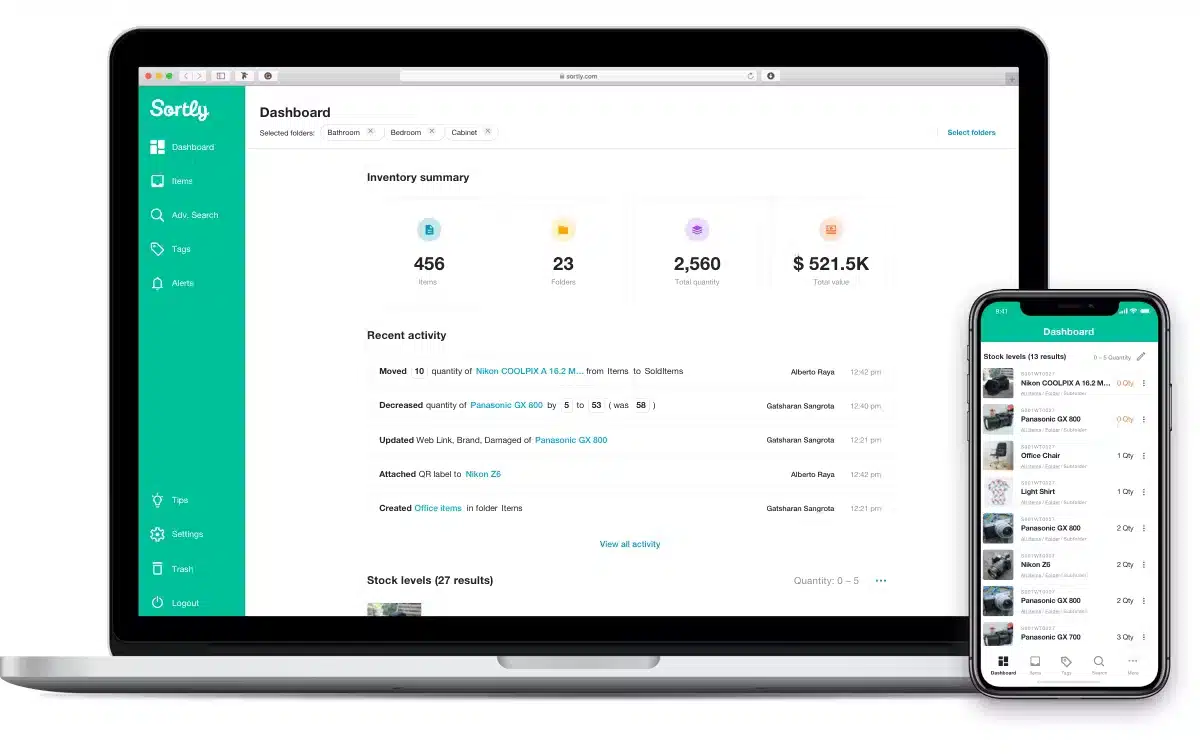
Sortly is a user-friendly retail inventory software designed for businesses that need simple, visual stock tracking. With an intuitive mobile app and barcode scanning features, Sortly makes it easy for retailers to manage inventory, track stock levels, and organize products without complex setups.
Features:
- Real-time inventory tracking
- Barcode and QR code scanning
- Low-stock alerts and automated reminders
- Multi-location inventory management
- Customizable folders and tags for easy organization
| Pros | Cons |
|
|
Key Features of Retail Inventory Software
Finding the right inventory software can make managing your store easier and more efficient. Here are the key features to look for:
- Real-Time Inventory Tracking – Updates stock levels instantly to prevent overstocking or stockouts.
- Automatic Reordering – Sends alerts or places orders when stock is low to ensure availability.
- Multi-Store Management – Syncs inventory across multiple locations to balance stock efficiently.
- Barcode Scanning – Speeds up stock checks and reduces errors by scanning products.
- Reports & Analytics – Provides insights on sales trends and stock levels for better decision-making.
- System Integration – Connects with POS, accounting, and e-commerce platforms for seamless operations.
- Mobile Access – Allows stock monitoring from anywhere with a mobile app or cloud-based system.
- Cost Tracking – Helps track product costs, profit margins, and overall inventory value.
- Returns & Refunds Management – Updates stock automatically when handling returns or exchanges.
- User-Friendly Interface – Simple and intuitive design ensures easy adoption with minimal training.
Choosing inventory software with these features will help your business run more efficiently and reduce manual work!
Tips for Choosing the Best Retail Inventory Software

Picking the right inventory software can make a big difference for your business. Here’s how to find the best fit:
1. Know Your Needs
Think about your business size, inventory turnover, and must-have features like multi-store management or reporting. A small boutique needs different tools than a big retail chain.
2. Plan for Growth
Your software should grow with your business. Look for a system that can handle more inventory, locations, and complex reporting as you expand.
3. Check Integration Options
Make sure the software connects smoothly with your POS, accounting, and online store. This keeps data consistent and reduces manual work.
4. Keep It Simple
Choose software that’s easy to use. A user-friendly system means your team can learn it quickly without long training sessions.
5. Go Mobile
A cloud-based or mobile-friendly system lets you check inventory from anywhere. This is great for businesses with multiple locations or managers on the go.
6. Read Reviews
See what other retailers say about the software. Look for feedback on customer support, ease of use, and reliability.
7. Test Before You Buy
Most providers offer free demos or trials. Try the software first to see if it meets your needs before committing.
8. Compare Cost vs. Value
Don’t just go for the cheapest option—choose software that improves efficiency, reduces errors, and boosts profits for the best return on investment.
By following these tips, you’ll find a retail inventory system that makes managing stock easier and helps your business grow!
Conclusion
Selecting the right retail inventory software can greatly enhance your business by improving stock accuracy, streamlining management, and optimizing workflows. Whether you run a single store or multiple locations, the right system helps cut costs, save time, and improve customer satisfaction.
With features like real-time tracking, automated stock replenishment, and detailed reporting, retail inventory management software enables smarter decision-making and keeps you competitive.
For a complete solution that integrates smoothly with your business, HashMicro’s Retail Inventory Management Software is an excellent choice. Want to improve your inventory management?
Try a free demo and see the benefits for yourself.

Frequently Asked Questions on Retail Inventory Software
-
How does retail inventory software integrate with e-commerce platforms?
Retail inventory software often integrates seamlessly with e-commerce platforms, allowing businesses to synchronize stock levels, manage orders, and update product information across online and offline channels in real-time.
-
Can small businesses benefit from retail inventory management software?
Yes, small businesses can significantly benefit from retail inventory management software by automating stock tracking, reducing manual errors, and gaining insights into sales trends, which helps in making informed purchasing decisions.
-
How do cloud-based inventory systems enhance retail operations?
Cloud-based inventory systems provide retailers with real-time access to inventory data from any location, facilitate seamless updates across multiple sales channels, and reduce the need for on-premise IT infrastructure, thereby enhancing operational efficiency.
-
What role does barcode scanning play in inventory management?
Barcode scanning streamlines inventory management by enabling quick and accurate tracking of products, reducing manual data entry errors, and facilitating efficient stock takes and order processing.




































